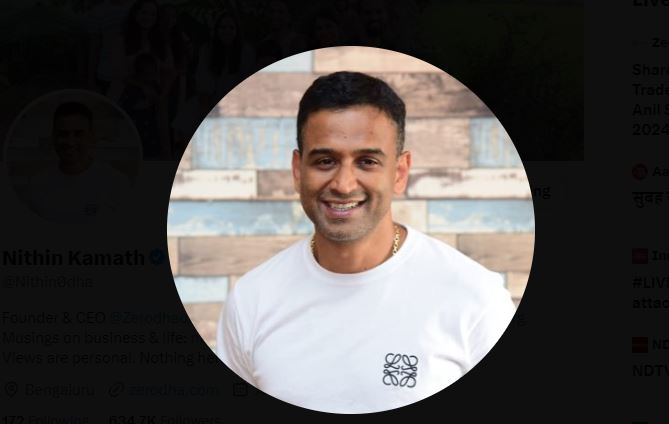On A Bengaluru water crisis, Zerodha Co-founder, Nithin Kamath, said, “I learned recently that wastewater could be part of the solution. If this excess STP water can be converted to high-quality water, about 450–500 MLD of water demand could be met by decentralized treatment plans.”
Nithin Kamath, the co-founder of Zerodha, spoke about the Bengaluru water crisis, and warned that such extreme weather events may increase in the future. One of India’s youngest billionaires in India, also stated that wastewater holds potential as a solution to this problem.
Nithin Kamath, founder and CEO of Zerodha and Rainmatter Foundation, propped up Boson White Water, a Bengaluru-based firm that converts wastewater into potable water, stating that wastewater could be the part of the solution for Bengaluru’s water shortage crisis, on X. Though some people agreed with him, whereas some people did not like the idea of drinking water that was once sewage.
Nithin Kamath’s Solution On Bengaluru Water Crisis
Idea of treating wastewater and reusing it was not accepted by some of the users who replied on his forwarded video and said that without any scientific backing, that treated water will have heavy metals or hormones and therefore is unfit for consumption. The concern also stemmed from the perception that sewage treatment plants are run in a very bad way.
It just took one bad rainy season for Bengaluru to face a massive water shortage crisis. Given that extreme weather conditions will only become more common, this probably won’t be the last time we face this crisis.
I learned recently that wastewater could be part of the… pic.twitter.com/dinatQITVk
— Nithin Kamath (@Nithin0dha) April 9, 2024
Boson White Water Gets 300 Calls After Nithin Kamath’s Post
Vikas Brahmavar, one of the founders of the start-up Boson White Water, said they were deluged with calls after their promotional video forwarded by Kamath went viral.
“In a day, we got more than 300 calls. We have been doing this for two years now, and at most we get a dozen calls every day,” said Brahmavar to PTI.
But Brahmavar said most of it again were attempts to reiterate that wastewater, treated or not, is smelly and dirty.
“In these two years, we have come a long way. But we are yet to convince people to drink wastewater. It will take some more time to break through that psychological barrier. What people are failing to understand is that the moment we started depending on tankers for water supply, we are past the ‘water is dirty’ curve. Who knows where they get that water from,” said Brahmavar.
Indian Institute of Science Solution On Bangalore Water Crisis
Centre for Ecological Sciences (CES) of Indian Institute of Science, Bengaluru, figured a way for the IT hub to stay water surplus. On an average, 20.05 TMC (thousand million cubic feet) of water is required every year for domestic purposes, CES’s technical report established.
Of which about 16.04 TMC, about 80 percent, could be met just by treating sewage water, suggested the report. Add to this, the rain yield, which is about 14.80TMC a year and Bengaluru could easily meet its water needs, the report stated.
(With Inputs From PTI)

